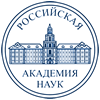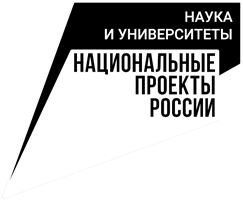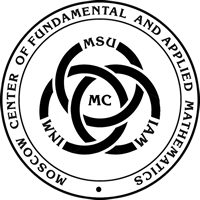50th meeting of the seminar
«Supercomputer simulation of the Earth system»
The seminar is devoted to various aspects of the application of supercomputer modeling methods for solving weather and climate forecasting problems.
Seminar co-organized organizations
 |
Lomonosov Moscow State University (MSU) |
 |
Federal Service for Hydrometeorology and Environmental Monitoring of Russia |
 |
Russian Academy of Sciences |
Seminar Leader:
 |
V.A. Sadovnichy academician, rector of Lomonosov Moscow State University |
Co-leaders of the seminar:
 |
R.M. Wilfand Doctor of Technical Sciences, Scientific Director of the Hydrometeorological Center of Russia |
 |
S.A. Dobrolubov Corr. RAS, Dean of the Faculty of Geography, Lomonosov Moscow State University |
 |
N.G. Yakovlev Doctor of Physics and Mathematics, Leading Researcher, Institute of Numerical Mathematics, RAS |
 |
V.M. Stepanenko Doctor of Physics and Mathematics, Deputy Director of RCC MSU |
Scientific Secretary of the seminar:
 |
M.I. Varentsov Ph.D., senior researcher of RCC MSU |
Seminar topics cover the following main areas (but not limited to them):
- Methods and technologies for using supercomputer computing in interdisciplinary problems of environmental sciences.
- Mathematical modeling of processes in the climate system.
- Application of supercomputer technologies to solve problems of weather forecasting.
- Application of supercomputer technologies to solve problems of assessing climate change and their consequences for the environment.
- Application of supercomputer technologies for the complex solution of problems of environmental protection, including natural hazards and man-made disasters.
PROGRAM
17:30 GMT+3
| Tsyrulnikov M.D. | Hydrometeorological Center of Russia |
| Sotskiy A.E. | Hydrometeorological Center of Russia |
| Gaifulin D.R. | Hydrometeorological Center of Russia |
Assimilation of meteorological observations:
condition, achievements and development trends
The task of assimilation of observation data is given. The state and directions of the development of the global system of observations of the earth's atmosphere and the contribution of various observations to the weather forecast are discussed. The existing approaches to solving the problem of assimilation of data in meteorology (variational assimilation, the Kalman filter, particle filters and their hybrids) are briefly characterized. Unresolved problems are discussed. The possibilities of using and areas of application of machine learning methods in the assimilation of observation data are evaluated.
The state of research and development in the field of operational assimilation of data in the Hydrometeorological Center of Russia is described. An example of the use of the neural network is given to restore the field of sea ice according to measurements of the microwave satellite radiometer MTVZA-GA. A new approach to the use of ensembles when assimilating data is described. The approach is based on the proposed resource model of a local inpatient random field of forecast errors. The model is evaluated directly according to the forecast ensemble, which allows you to abandon the use of noisy ensemble covaries and empirical selective noise filtering procedures. The effect of neural network modeling in the procedure of statistical assessment of the model according to the ensemble sample is demonstrated. On model examples of static and cyclic data absorption, the advantage of the new method is demonstrated compared to the existing ones. The method of ensemble assimilation we proposed uses a variation sole to solve the equations of the analysis and will be used in the operational system of global assimilation of meteorological observations of the Russian Hydrometeorological Center.
The meeting of the seminar will be held in the form of a webinar on the Zoom platform.
Link to the conference:
https://us02web.zoom.us/j/87204152077?pwd=Z2lRdmlTVGJpYThxdXZyRkQ3NHh4Zz09
Meeting ID: 872 0415 2077
Passcode: 797339
To simplify our work during the seminar, please do the following: check in advance that Zoom works for you (in the Zoom application settings you can check the quality of the speakers and microphone) and enter your last name, first name in your profile settings and middle name in full (this can be done on your profile page (https://us02web.zoom.us/profile) - in this case, conference colleagues will see how to contact you.

